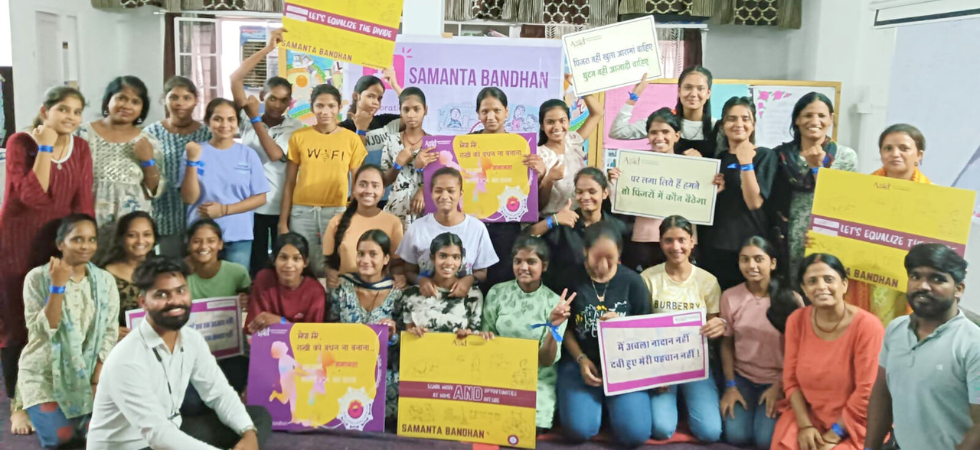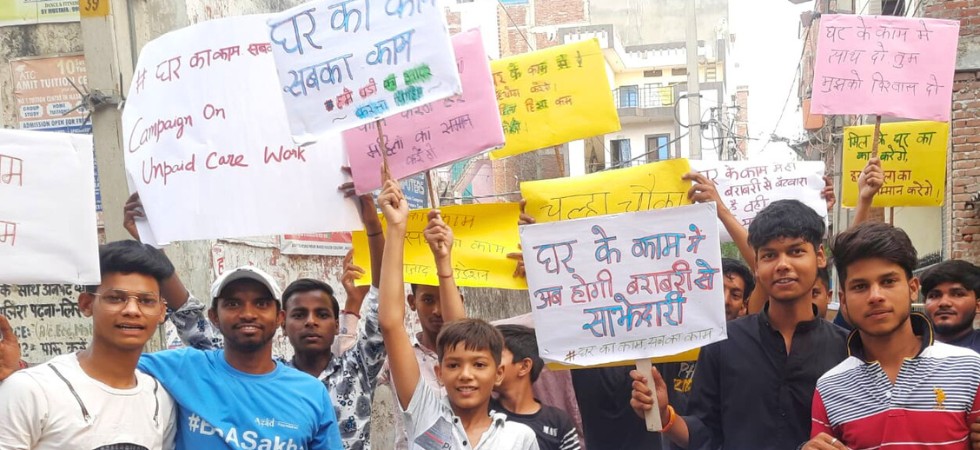In 2024, Azad Foundation successfully carried out the Samanta Bandhan campaign, transforming the traditional festival of Raksha Bandhan into a powerful movement for gender equality. The campaign called on communities to reject patriarchal notions of ‘protection’ and instead embrace equality and mutual respect.

During the campaign, participants tied the thread of equality to one another, symbolizing a commitment to gender justice. Engaging discussions were held on the burden of unpaid care work on women and girls, highlighting the importance of sharing responsibilities at home. The campaign also promoted non-traditional livelihoods for women, sparking conversations in schools and communities about the importance of empowering women through skill education and employment.
Samanta Bandhan 2024 was not just a celebration but a collective stand against gender-based violence and restrictive norms, fostering a society where every individual, regardless of gender, class, or caste, is treated with dignity and respect.
